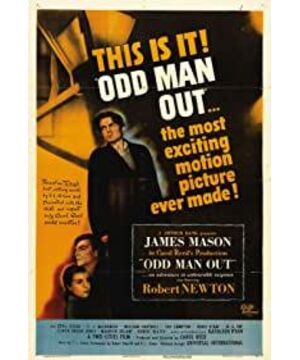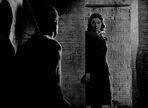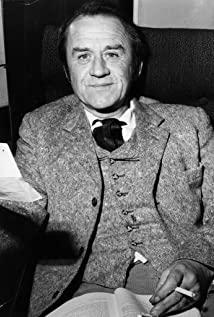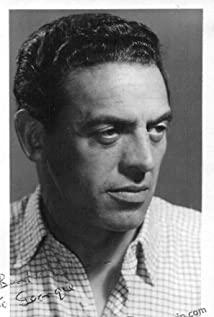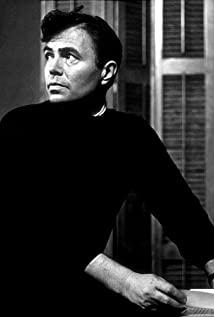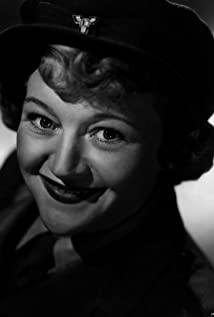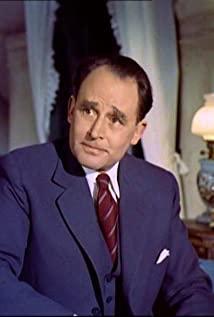The setting of the brave and loyal will make people think that this is a genre film. At the beginning of the film, Carol Reed focuses on a meeting that is taking place. We follow the camera's point of view and find that the characters in the film are in Discussing how to rob a bank, the film sets a goal at the beginning, but does not directly explain the reason for the robbery, which leaves suspense for the audience and is also a very genre-like setting.
But as the story progresses, it seems to disappoint the audience more and more. The process of robbing a bank is very simple, but the only thing that goes wrong is the male protagonist-because his temperament has been honed in prison for a long time, or it may be because of Having cultivated in the house for too long, I have exhausted my vigor and hostility—the dizziness of the outside world. The companions were forced to leave him because of tension and accidents, and the actor entered a ruin and got a suspended rest. It's the first crisis event in the entire film, and Carroll Reed doesn't seem to be telling the story in a snap-and-fly narrative. The male protagonist did not plan his next escape in the ruins, but fell into a situation of moral self-blame-the subjective lens that is neither real nor real, and both dream and fantasy let us know the dilemma of the male protagonist. The accomplices were also arrested by the police, confronted and killed by the police for wrongly believing and saying wrongly. The partner who rescued the hero was ultimately unsuccessful in escaping the pursuit of the police. But the male protagonist has gone through a journey of suffering. The rhythm of the entire narrative is interconnected and abruptly interrupted, keeping the audience in a state of detachment at all times.
While the hero is fleeing on the road, Carol Reed depicts the streetscape, and at the same time he depicts everyone who treats the hero. From this narrative, we indirectly know the identity and social status of the hero. This is a A very realistic and sophisticated technique, which overturns our expectations for the beginning of the film - a crime film, which at the same time shows no trace, no effort, and no anti-genre method to subvert the audience's cognition, but a lot of effort. Take us into the social situation that the real director is involved in. The male protagonist is actually a controversial person. He is the leader of the Northern Ireland Resistance Army, but as a leader, he has a clear dislike for indiscriminately killing innocent people and killing innocent people by mistake. And the public's perception of him also carries extremely complex emotions. Carol Reed detaches the focus of the narrative from the escape of the hero (in fact, it is also a powerless escape, the hero is almost in a dazed grasp of his own space and time), and deliberately shows passers-by, or people's Attitude, showing us a landscape like an axis of Ukiyo-e. Against the background of all kinds of people, the sacrifice of the heroine and the hero becomes extremely moving.
This is a genre-like art film. The director always strips the audience from a perception or plot, and puts them in the same position as the male protagonist. In the end, the male protagonist tries to find relief in his childhood and religion - as the painter said, his body will die, while his soul is struggling. In the end, he fell into the arms of his lover. The black sense of absurdity and powerlessness filled the whole film. The macro social portrayal and the micro private emotion formed a unique tension.
View more about Odd Man Out reviews


